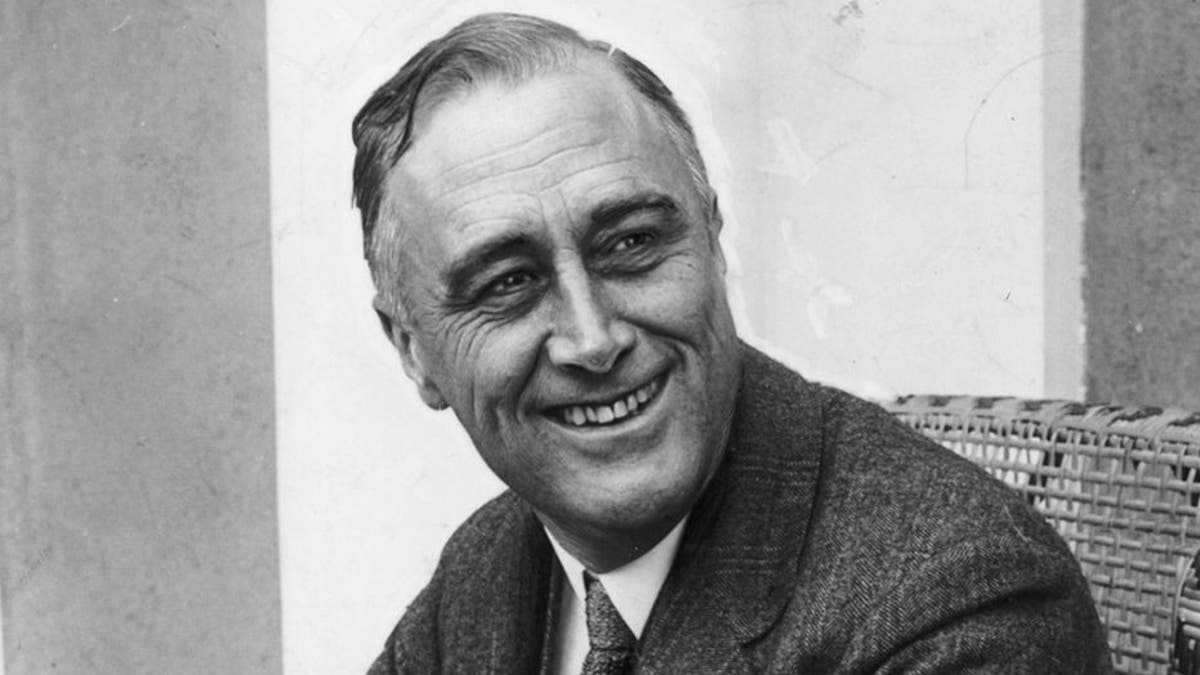On this day, June 22, 1944, President Franklin D. Roosevelt signed the GI Bill, a law designed to compensate returning members of the armed forces for their services and efforts in World War II.
The legislation is officially known as the Military Readjustment Act of 1944, according to History.com.
“The American Legion, a veterans organization, successfully fought for many of the provisions included in the bill, which gave returning service members access to unemployment compensation, low-interest housing and business loans, and most importantly , financing for education,” said that site. .
ON THIS DAY IN HISTORY, JUNE 21, 1982, PRINCE WILLIAM, HEIR TO THE BRITISH THRONE, IS BORN
The American Legion's acting public relations director knew the bill needed a catchier name and called it the “Soldiers' Bill of Rights” as it offered federal aid to help veterans adjust to civilian life in the areas of hospitalization, home and business purchasing and, in particular, education, the National Archives said.
The law provided tuition, subsistence, books, supplies, equipment and counseling services to veterans so they could continue their education, the records also noted.
President Roosevelt signs the Soldiers' Bill of Rights, which provided extensive benefits to World War II veterans. Members of the Senate and House of Representatives and members of the American Legion and Veterans of Foreign Wars witnessed the signing. (Getty Images)
The Roosevelt administration created the legislation (part of the New Deal reforms) to prevent a relapse into the Great Depression after the war ended.
“FDR especially wanted to avoid a repeat of the Bonus March of 1932, when 20,000 unemployed veterans and their families flocked to Washington in protest,” History.com said.
Over the next seven years, some eight million veterans received educational benefits.
“Under the GI Bill, approximately 2,300,000 attended colleges and universities, 3,500,000 received school training, and 3,400,000 received on-the-job training,” the National Archives said.
Full classrooms prompted widespread improvement and expansion of the university's facilities and teaching staff.
“The number of degrees awarded by American colleges and universities more than doubled between 1940 and 1950, and the percentage of Americans with bachelor's degrees or advanced degrees rose from 4.6% in 1945 to 25% a half-century later,” they also say. the files. .
ON THIS DAY IN HISTORY, JUNE 15, 1864, THE ARLINGTON NATIONAL CEMETERY IN VIRGINIA IS ESTABLISHED
As educational institutions opened their doors to this new population of students, packed classrooms led to widespread improvements and expansion of university facilities and faculty, History.com reported.

FDR's legislation, the GI Bill, “changed the lives of millions by replacing old obstacles with paths of opportunity,” President George HW Bush said, according to the Department of Defense. (Getty Images)
“A number of new vocational courses were developed across the country, including advanced training in education, agriculture, commerce, mining and fishing, skills that had previously only been taught informally.”
The GI Bill also supported the baby boom.
“We've all heard of the infamous baby boom that occurred after World War II, when millions of veterans returned home to marry and start families,” the US Department of Defense (DOD) said.
“But because they did so in record numbers, they faced a severe housing shortage. A home loan provision of the GI Bill helped greatly to address that.”
“No wonder American historians call the GI Bill one of the most successful welfare laws ever developed.”
By 1955, 4.3 million mortgage loans worth $33 billion had been made to veterans, who, in turn, were responsible for purchasing 20% of all new homes built after the war.
“The boom had a ripple effect throughout the economy, easing any concerns of a new depression and creating unprecedented prosperity for a generation,” the DOD said.
ON THIS DAY IN HISTORY, JUNE 12, 1987, REAGAN URGES GORBACHEV TO “TEAR DOWN THIS WALL”
Although the original GI Bill ended in 1956, newer programs have allowed veterans of Korea, Vietnam, Iraq, Afghanistan and other wars to pursue a college education and secure a ticket to careers and professions they previously would not have been able to enter. according to the Bill of Rights Institute.

FDR signs the New Deal legislation in the image shown here. (Getty Images)
“No wonder American historians call the GI Bill one of the most successful welfare laws ever developed, a reward to soldiers for serving their country and defending freedom in World War II and after,” he noted. .
For more lifestyle articles, visit www.foxnews/lifestyle
Over a 50-year period, the GI Bill had a huge impact, History.com said, with 20 million veterans and dependents using its educational benefits and 14 million guaranteed home loans, for a total federal investment of $67 billion.
CLICK HERE TO SUBSCRIBE TO OUR LIFESTYLE NEWSLETTER
“Among the millions of Americans who have taken advantage of the bill are former Presidents George HW Bush and Gerald Ford, former Vice President Al Gore, and entertainers Johnny Cash, Ed McMahon, Paul Newman and Clint Eastwood,” he also said. place.
CLICK HERE TO GET THE FOX NEWS APP
President George HW Bush summarized the bill's impact in 1990 by saying that “the GI Bill changed the lives of millions by replacing old obstacles with pathways of opportunity,” according to the DOD.
The post On this day, June 22, 1944, FDR signs the GI Bill, which will have a far-reaching impact on American veterans. appeared first on Telegraph247.